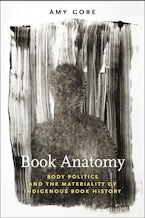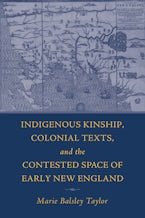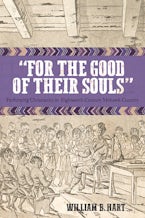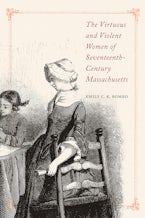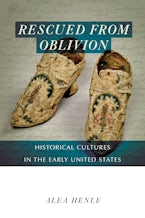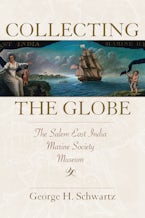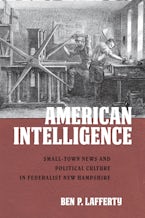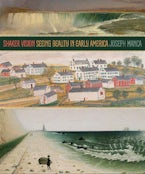- Home
- Native Americans of the Northeast
- "Good News from New England" by Edward Winslow
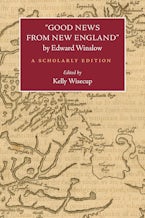
"Good News from New England" by Edward Winslow
A Scholarly Edition
Edited by Kelly Wisecup
Published by: University of Massachusetts Press
Series: Native Americans of the Northeast
192 Pages, 6.00 x 9.00 x 0.60 in, 7 b&w illus.
Other Retailers:
First published in 1624, Edward Winslow's Good News from New England chronicles the early experience of the Plimoth colonists, or Pilgrims, in the New World. For several years Winslow acted as the Pilgrims' primary negotiator with New England Algonquians, including the Wampanoag, Massachusett, and Narragansett Indians. During this period he was credited with having cured the Wampanoag sachem Massasoit, one of the colonists' most valuable allies, of an apparently life-threatening illness, and he also served as the Pilgrims' chief agent in England.
It was in the context of all of these roles that Winslow wrote Good News in an attempt to convince supporters in England that the colonists had established friendly relations with Native groups and, as a result, gained access to trade goods. Although clearly a work of diplomacy, masking as it did incidents of brutal violence against Indians as well as evidence of mutual mistrust, the work nevertheless offers, according to Kelly Wisecup, a more complicated and nuanced representation of the Pilgrims' first years in New England and of their relationship with Native Americans than other primary documents of the period.
In this scholarly edition, Wisecup supplements Good News with an introduction, additional primary texts, and annotations to bring to light multiple perspectives, including those of the first European travelers to the area, Native captives who traveled to London and shaped Algonquian responses to colonists, the survivors of epidemics that struck New England between 1616 and 1619, and the witnesses of the colonists' attack on the Massachusetts.
It was in the context of all of these roles that Winslow wrote Good News in an attempt to convince supporters in England that the colonists had established friendly relations with Native groups and, as a result, gained access to trade goods. Although clearly a work of diplomacy, masking as it did incidents of brutal violence against Indians as well as evidence of mutual mistrust, the work nevertheless offers, according to Kelly Wisecup, a more complicated and nuanced representation of the Pilgrims' first years in New England and of their relationship with Native Americans than other primary documents of the period.
In this scholarly edition, Wisecup supplements Good News with an introduction, additional primary texts, and annotations to bring to light multiple perspectives, including those of the first European travelers to the area, Native captives who traveled to London and shaped Algonquian responses to colonists, the survivors of epidemics that struck New England between 1616 and 1619, and the witnesses of the colonists' attack on the Massachusetts.
Kelly Wisecup is assistant professor of English at the University of North Texas and author of Medical Encounters: Knowledge and Identity in Early American Literatures (University of Massachusetts Press, 2013).
"A wonderful selection of texts, nicely placed in context by an informative editor's introduction. I will definitely use it for courses I teach on colonial America."—Jenny Pulsipher, author of Subjects unto the Same King: Indians, English, and the Contest for Authority in Colonial New England
"In a lengthy introduction, the editor describes the literary and historical contexts for Winslow's work, supporting her explanation with judicious, careful annotations throughout. This is a welcome and informative addition to reading lists for early American literature courses. Recommended."—Choice
"What makes Wisecup's scholarly edition especially useful in the classroom and for research is that her Good News is the first fully contextualized and annotated modern edition of the first (1624) London imprint, supplemented in its appendix by numerous selections from seventeenth-century voices with parallel and opposing viewpoints. In this respect as in its informative introduction, Wisecup's edition is a balanced, less politically charged, alternative to Jack Demspey's 2001 edition of Good News, or the many downloadable nineteenth-century editions of uncertain origin and dubious trustworthiness."—American Literary History
"Wisecup's edition of Winslow allows us to apply new critical approaches to English colonial texts . . . This edition of Good News is subtitled 'a scholarly edition,' and it surely is. But it promises to be a useful and exciting classroom edition as well."—Early American Literature

